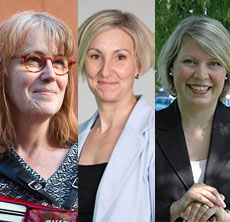“We Could Play Nicely Together—Instead of Just Chaos”
A Parent’s, a Child’s and a Music Therapist’s Perceptions of Music Therapy as a Tool in a Reunification Process in Child Protection
DOI:
https://doi.org/10.15845/voices.v25i2.4280Keywords:
child protection, foster care, reunification intervention, families at risk, music therapy, collaborative interviewAbstract
For families where abuse or neglect has led to the child being taken into care, support can be vital for the child’s future life. This qualitative, interpretive study aimed to explore a child’s and parent’s experience of music therapy as a supportive intervention following a period of the child’s placement in foster care. The study is based on a semi-structured collaborative interview in which a family dyad, consisting of a parent and a child aged 15 years, were invited to a post-therapy interview two years after the completion of music therapy. We used reflective thematic analysis (Braun & Clark, 2019) to analyse the interview. The findings suggest that the parent-child dyad experienced music therapy positively and contributed to the parent-child relationship. Music therapy was experienced as a safe environment where they felt validated and at home. The dyad described the music as representing the family’s culture and as helpful in transferring knowledge from sessions to everyday life. Using music to create a safe atmosphere, express emotions, and strengthen attachments when children return home after a period in foster care can benefit child protection.

Downloads
Published
How to Cite
Issue
Section
License
Copyright (c) 2025 Rut Wallius, Stine Lindahl Jacobsen, Alexandra Ullsten

This work is licensed under a Creative Commons Attribution 4.0 International License.
Articles published prior to 2019 are subject to the following license, see: https://voices.no/index.php/voices/copyright

